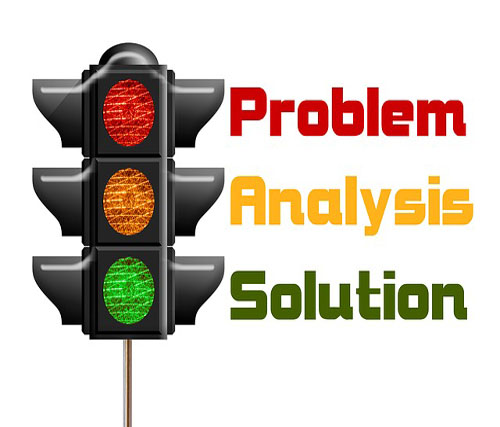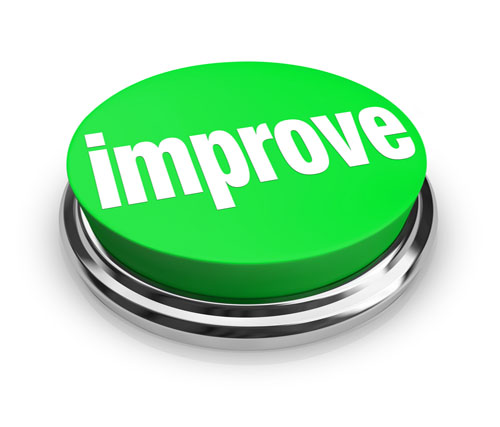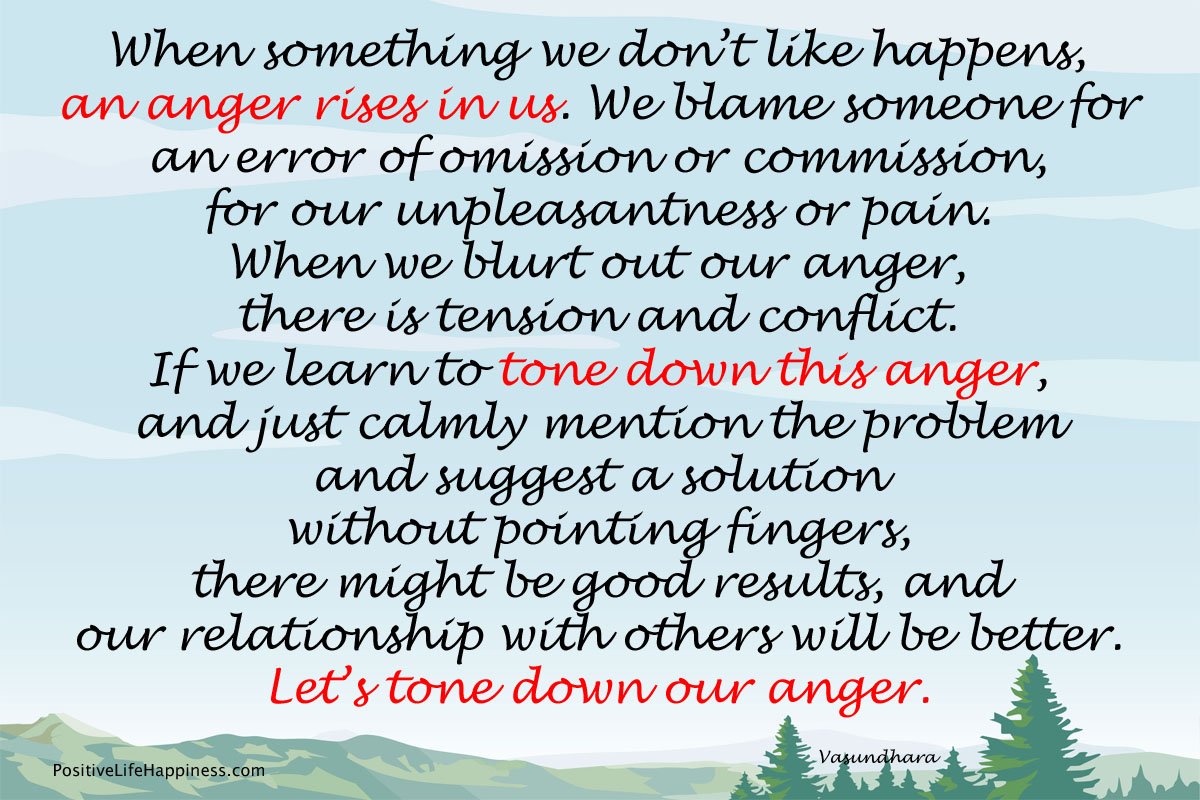How to control or tone down anger
How to control or tone down anger
There are many kinds of people and there are many kinds of anger. But here, we are only dealing with people who know that they get angry, that it is affecting their lives negatively, that it is causing unhappiness to themselves and those around them, and would like to know how to control or tone down that anger.
What do you know about your anger? Why does it rise?
To put it simply, when something we don’t like happens, an anger rises in us. It may be an incident, a situation or a person that triggers the anger. We don’t like the way something happens, or we don’t like the way people behave. We expect a thing to happen in a certain way, but find that it does not go the way we like. So we blame someone for an error of omission or commission, for our unpleasantness or pain. We pour out the venom, Or we keep it all inside and explode all of a sudden one day.
When we thus blurt out our anger or explode, there is tension and conflict. And this causes unhappiness and sometimes a disaster to everyone involved.
So, we know that we get angry and also a little bit about how it rises. But the most important thing is, how do we control or at least tone down this anger?
No matter what anyone says, you cannot accomplish great things in life instantaneously. If someone tells you so, they are lying. You know, and everyone knows, that knowledge and practice are necessary for anything, and also that practice makes perfect. So, in order to control our anger, we have to educate ourselves about how to control it, and also how to practice it.
To solve any problem, first we have to educate ourselves about it. We have to do the same thing about our anger too.
We should teach ourselves about anger in the following ways.
First of all, as I said earlier, normally anger occurs because we expect something but something else happens. Our basic problem lies in the fact that we think that our anger can change the situation. We think that by getting angry, the problem will be resolved and the happening that angered or annoyed us, will not happen again. We think that when we get angry with another person, they will realize their fault and things will be fine again. In other words, we try to resolve the problem with our anger.
But the truth is the opposite of this. In reality, when we get angry, we don’t resolve anything. We may even make the problem worse than it is, and may even harm or break a relationship. If you have an anger problem, you have to understand this and ponder over it.
Secondly, you have to ask yourself these questions. Do you like it if someone gets angry with you, yells at you or heatedly points out that you did something wrong? Do you like it if someone shows their anger on you for something that happened to cause their anger that may not even be your fault? Certainly not! In that case, why should you think that your anger will be tolerated by others?
Thirdly, we have to understand that our anger is not beneficial to us in any way. It does not benefit our physical health or mental health. Anger can cause or aggravate physical illnesses and affect our mental peace and happiness. Now tell me, is anger worth ruining your health?
Next, we have to understand that anger makes us behave like idiots. Whatever we say or do in anger, we almost always regret it later. In fact, most of the times, we look back and feel stupid. So you have to understand that when you are angry you are not smart, but stupid. Is anger worth making a fool of yourself?
Finally, getting angry can be just a bad habit. You do so because you are used to it. You are used to getting angry for every small incident or behavior that you don’t agree with, and also because others have been tolerating it too much. Understand that it can backfire on you, sooner or later. So you should nip this bad habit in the bud.
So, by the above methods, and also in your own ways, you have to educate yourself about your anger and its unpleasant effects.
One thing most people don’t know or understand is this. When a trait in you adversely affects you life, if you ponder deeply, and recognize what the problem is, and see the defect that causes the problem, just doing so will automatically remove the defect itself, in time. Please remember this. So taking time to think about your anger and recognizing it, is a major step in controlling your anger.
Now comes the next important step. That is Practice. All that you have learnt and understood so far is a waste if you actually don’t put it into practice.
How do you practice? Every chance you get, every time the anger rises in you, you have to remind yourself and tone it down. You have to remind yourself, that anger does not help matters, that it may even worsen them.
If it is a person or what they said or did makes you angry, you should, as calmly as possible, try to mention the problem without pointing fingers, and suggest a solution. If you do this, there will be good results; your relationship with others will be better; the situation that you disliked, will not cause tension or unhappiness that can linger all day or even longer. And because of your calm behavior, the person who angered you will be more likely to listen to what you are saying and follow what you suggested to them. They may even admit their fault to you.
A calm, angerless mind can solve problems effectively. People will like you more. Your health will improve. There will be joy and peace in your mind. On the other hand, an angry, enraged mind will produce havoc, ill health and unhappiness.
Let’s tone down our anger, let’s gradually control our anger, and lead a calm and happy life.

















 Versatile Recipes Website
Versatile Recipes Website



